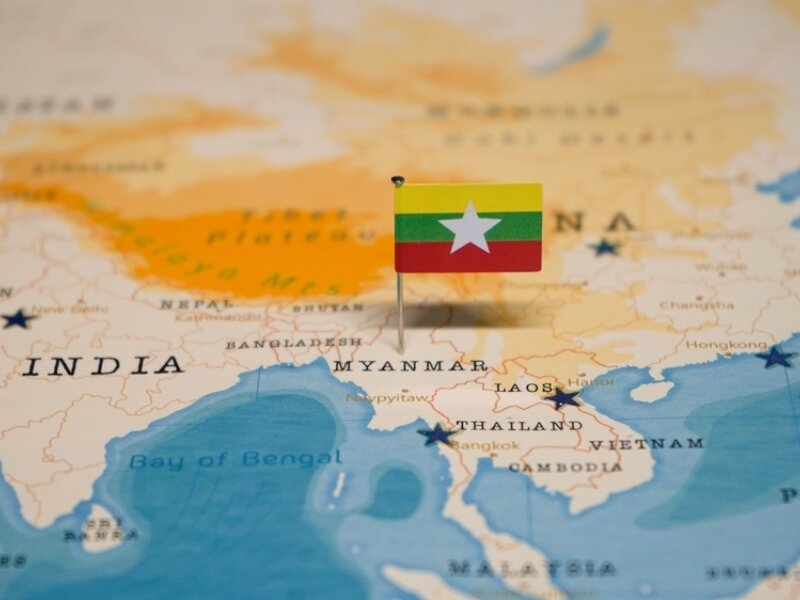Kosovo and Serbia draw attention to the western Balkans
Causes and possible developments of the recent Kosovo-Serbia tensions. The importance of Western Balkan political stability for European security. An analysis by Antonio Stango.

Although fourteen years have elapsed since Kosovo declared its independence from Serbia – and 23 since UNSC Resolution 1244 marked the end of military conflict in the region – tensions between Belgorod and Pristina may soon be sparked again. The last incident that raised fears of armed conflict was the attempt by Kosovo to impose, between July 31st and August 1st, two administrative measures – in retaliation against Serbia – whose importance in-context may be greater than it seems.
Since Serbia does not recognize identity papers released by Kosovo, newcomers bearing Serbian papers to Kosovo should receive a substitute Kosovar document expiring in 90 days. And since Belgorod temporarily substitutes Kosovar car plates that cross the border into Serbia, the same should now happen for Serbian plates crossing the border with Kosovo. Pristina had already sought to impose the substitution of car plates in September 2021, but the measure had sparked a ten-day protest in the northern provinces, where most of the population is ethnically Serbian, as well as some threatening military maneuvers by Serbian forces at the border. Only EU mediation led to a tentative settlement of the “plates crisis”, with the decision to cover up with adhesives Serbian plates in Kosovo and Kosovar plates in Serbia: in April, however, Kosovo recognized Serbian unwillingness to definitively settle the issue and took the path of reciprocity.
This is in fact the crux of the matter: Serbia can not allow recourse to the international law principle of reciprocity, since it has never joined the 100 States that recognize Kosovo as an independent entity and its Constitution still considers it a Serbian province: on the other hand, Kosovo holds reciprocity as a fundamental manifestation of its sovereignty, if not a convenient one for EU mediators. Once again – after demonstrations, roadblocks, harsh statements by the Serbian government and Russian accusations that Kosovo plans the expulsion of its ethnic Serbian citizens – UE mediation resulted in Kosovo delaying the application of the measures until September 1st. A definitive settlement by that date is, however, clearly unlikely.
Serbia is supported in its stance by Russia and China (without whose assent in the Security Council no new State can be allowed in the United Nations); however, there are also five members of the European Union, which Kosovo seeks to join one day, that refuse to recognize the latter’s sovereignty. On the other hand, both Belgorod and Pristina have established tight ties with the EU and enjoy the subsequent economic benefits. Serbia has obtained EU candidate status in 2021: Belgorod is therefore formally committed to uphold its fundamental pillars – among which non-discrimination of minorities plays a relevant role – and recognizes the EU’s key role in ensuring regional security, stability, and development. Meanwhile, Kosovo hosts the Union’s EULEX mission on the rule-of-law, as well as the United Nations Interim Administration Mission in Kosovo (UNMIK), and the NATO Kosovo Force (KFOR), with around 3800 operatives on the field.
In April 2013, Serbian and Kosovar representatives also signed in Brussels, after years of attempts at dialogue and EU mediation, a treaty on the “Principles governing the normalization of relations” that effectively contributed to settle several divergences; at the end of this March, however, Serbian president Aleksandar Vučić declared its invalidity, accusing Kosovar authorities of violations. It might not be coincidental, as many observers point out, that this happened only a few weeks after Russia’s invasion of Ukraine, signaling the Kremlin’s interest in raising Western Balkan tensions to force the EU and NATO to deal with a “second front” on their doorstep. Serbia did vote the two General Assembly Resolutions for the withdrawal of Russian forces, but refused to support sanctions, maintaining friendly relations with Moscow that featured several high-level encounters: a far cry from the Common Foreign and Security Policy (CFSP), to which all prospective EU members should adhere.
Both Kosovo and Serbia have gradually bolstered their defense budget in the last few years, but the military unbalance appears evident. The Kosovo Security Force (not an official armed force, forbidden under the current Constitution) is equipped with light weaponry and only has 2500 military personnel and 800 reservists available, while Serbia can count on no less than 25000 between army and air force as well as 50.000 reservists; Belgorod has also recently purchased weapons from Russia and China. In case of armed conflict, only NATO would be able to grant Kosovo protection.
A new Balkan war would not be in the interest of any State in the region: fanning the flames of inter-ethnic tensions (recently arisen also in nearby Bosnia-Herzegovina, where the October elections are set against the backdrop of a highly contested electoral system), however, could appear convenient to certain leaders seeking short-term political gains. The EU and its Member States will need to pay the closest attention to the region throughout these weeks, carefully exerting their influence to allay frictions and keep the crises from becoming uncontrollable.



